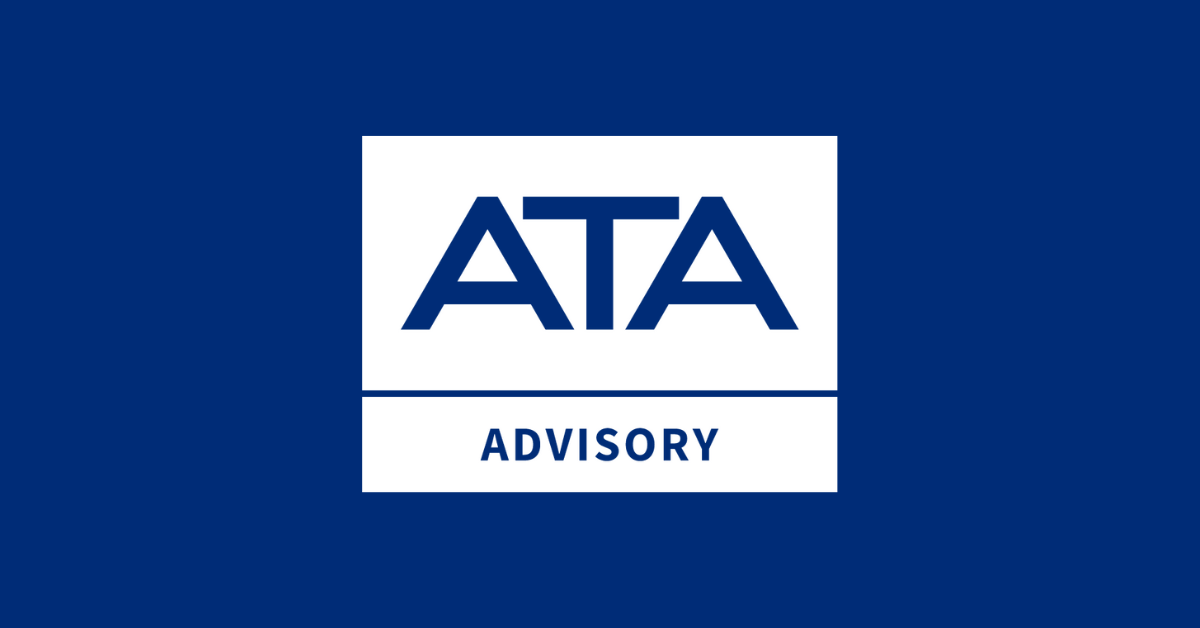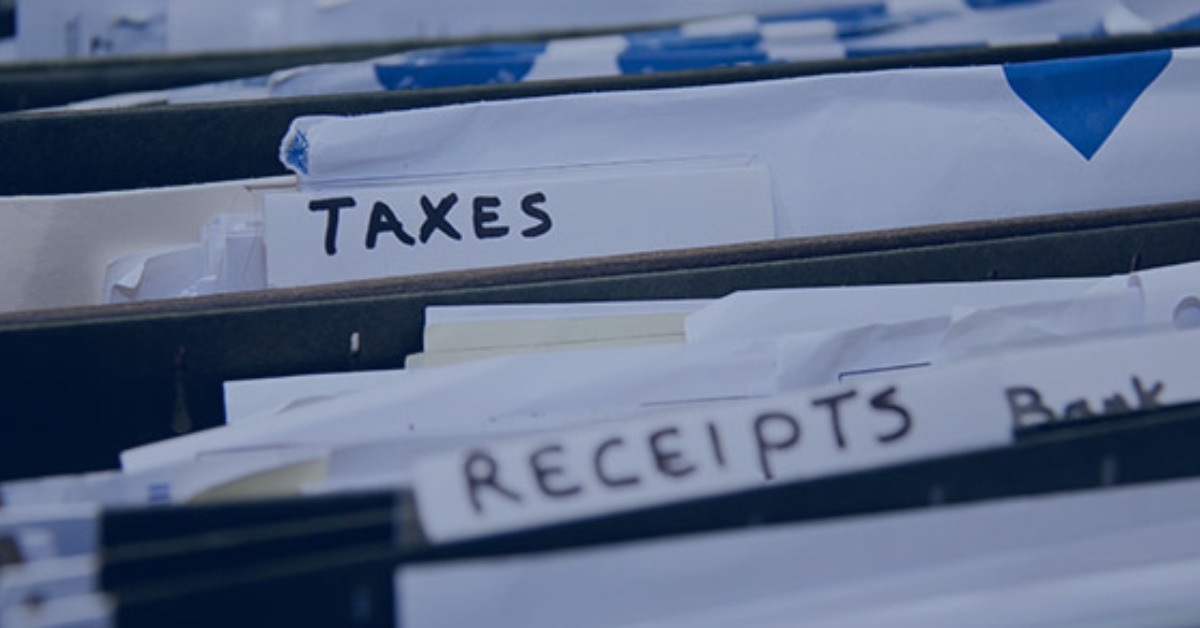Download our services below. For more information on ATA’s advisory services, please contact us.


Download our services below. For more information on ATA’s advisory services, please contact us.

In recent years, many workers have become engaged in the “gig” economy. You may think of gig workers as those who deliver take-out restaurant meals, walk dogs and drive for ride-hailing services. But so-called gig work seems to be expanding. Today, some nurses have become gig workers, and writers in Hollywood who recently went on strike have expressed concerns that screenwriting is becoming part of the gig economy.
There are tax consequences when performing jobs that don’t involve taxes being deducted from a regular paycheck. The bottom line: If you receive income from freelancing or from one of the online platforms offering goods and services, it’s generally taxable. That’s true even if the income comes from a side job and even if you don’t receive an income statement reporting the amount of money you made.
Gig worker basics
The IRS considers gig workers those who are independent contractors and conduct their jobs through online platforms. Examples include Uber, Lyft, Airbnb, and DoorDash. Unlike traditional employees, independent contractors don’t receive benefits associated with employment or employer-sponsored health insurance. They also aren’t covered by the minimum wage or other federal law protections and they aren’t part of states’ unemployment insurance systems. In addition, they’re on their own when it comes to retirement savings and taxes.
Make quarterly payments during the year
If you’re part of the gig or sharing economy, here are some tax considerations. You may need to make quarterly estimated tax payments because your income isn’t subject to withholding. These payments are generally due on April 15, June 15, September 15, and January 15 of the following year. (If a due date falls on a Saturday, Sunday or holiday, the due date becomes the next business day.) You should receive a Form 1099-NEC, Nonemployee Compensation, Form 1099-K, or other income statement from the online platform.
Some or all of your business expenses may be deductible on your tax return, subject to the normal tax limitations and rules. For example, if you provide rides with your own car, you may be able to deduct depreciation for wear and tear and deterioration of the vehicle. Be aware that if you rent a room in your main home or vacation home, the rules for deducting expenses can be complex.
Maintain meticulous records
It’s important to keep good records tracking income and expenses in case you are audited by the IRS or state tax authorities. Contact us if you have questions about your tax obligations as a gig worker or the deductions you can claim. You don’t want to get an unwanted surprise when you file your tax return. © 2023

The American Institute of CPAs (AICPA) has requested guidance from the IRS on several provisions of the SECURE 2.0 Act. One provision noted in an AICPA letter to the IRS involves matching contributions on student loan payments.
SECURE 2.0 aims to help employees who miss out on their employers’ matching retirement contributions because their student loan payments prevent them from making retirement contributions. The law allows them to receive matching contributions to retirement plans based on their qualified student loan payments. The AICPA asked whether the term “qualified student loan payment” includes loans paid for spouses and dependents.
Click the “Download” button below to read the AICPA letter.

Once you file your 2022 tax return, you may wonder what personal tax papers you can throw away and how long you should retain certain records. You may have to produce those records if the IRS audits your return or seeks to assess tax. It’s a good idea to keep the actual returns indefinitely. But what about supporting records such as receipts and canceled checks? In general, except in cases of fraud or substantial understatement of income, the IRS can only assess tax within three years after the return for that year was filed (or three years after the return was due). For example, if you filed your 2019 tax return by its original due date of April 15, 2020, the IRS has until April 15, 2023, to assess a tax deficiency against you. If you file late, the IRS generally has three years from the date you filed. However, the assessment period is extended to six years if more than 25% of gross income is omitted from a return. In addition, if no return is filed, the IRS can assess tax any time. If the IRS claims you never filed a return for a particular year, a copy of the return will help prove you did.
Property-related records
The tax consequences of a transaction that occurs this year may depend on events that happened years ago. For example, suppose you bought your home in 2007, made capital improvements in 2014 and sold it this year.
To determine the tax consequences of the sale, you must know your basis in the home — your original cost, plus later capital improvements. If you’re audited, you may have to produce records related to the purchase in 2007 and the capital improvements in 2014 to prove what your basis is. Therefore, those records should be kept until at least six years after filing your return for the year of sale. Retain all records related to home purchases and improvements even if you expect your gain to be covered by the home-sale exclusion, which can be up to $500,000 for joint return filers. You’ll still need to prove the amount of your basis if the IRS inquires. Plus, there’s no telling what the home will be worth when it’s sold, and there’s no guarantee the home-sale exclusion will still be available in the future. Other considerations apply to property that’s likely to be bought and sold — for example, stock or shares in a mutual fund. Remember that if you reinvest dividends to buy additional shares, each reinvestment is a separate purchase.
Marital breakup
If you separate or divorce, be sure you have access to tax records affecting you that are kept by your spouse. Or better yet, make copies of the records since access to them may be difficult. Copies of all joint returns filed and supporting records are important, since both spouses are liable for tax on a joint return and a deficiency may be asserted against either spouse. Other important records include agreements or decrees over custody of children and any agreement about who is entitled to claim them as dependents.
Loss or destruction of records
To safeguard records against theft, fire, or other disaster, consider keeping important papers in a safe deposit box or other safe place outside your home. In addition, consider keeping copies in a single, easily accessible location so that you can grab them if you must leave your home in an emergency.
Contact us if you have any questions about record retention.
© 2023

Small business owners: The Inflation Reduction Act contains provisions that may help you reduce taxes and energy costs. For example, small businesses usually are eligible to claim a tax credit worth 30% of the cost of switching to solar power. In addition to this tax break, switching to solar can lower a company’s operating costs and protect against energy price swings. Building owners may be able to claim a tax credit up to $5 per square foot to support energy-efficient improvements. And businesses that use trucks and vans generally can claim the Commercial Clean Vehicle Credit for up to 30% of the purchase prices of certain clean commercial vehicles. Contact us to learn more.

Businesses that operate in the retail or restaurant spheres have it relatively easy when it comes to collections. They generally take payments right at a point-of-sale terminal and customers go on their merry ways. (These enterprises face many other challenges, of course.) For other types of companies, it’s not so easy. Collections can be particularly challenging for business-to-business (B2B) operations, which often find themselves in complex relationships with key customers that aren’t quite as simple as “pay up or hit the road.”
If your company is dealing with slow-paying customers, which is hardly uncommon in today’s inflationary environment where everyone is trying to preserve cash flow, sometimes it helps to review the basics. Here are six tried-and-true strategies for increasing your chances of getting paid one way or another:
1. Request payment upfront.
For new customers or those with a documented history of collections issues, you could start asking for a deposit on each order. This would generally be a small but noticeable percentage of the contract or order price. You could also explore the concept of asking for a service retainer fee. Although these are typically associated with law firms, other types of businesses may use them to cover all or part of the expected costs of services.
2. Charge fees.
Most customers are likely familiar with the concept of late payment fees from dealing with their credit card companies. Applying this same concept to your collections can pay off. Implement fees or finance charges for past due amounts. Place extremely delinquent accounts on credit hold or adjust their payment terms to cash on delivery.
3. Reward timely payments.
An effective collections strategy isn’t only about “penalizing” slow-paying customers. It’s also about incentivizing those who pay on time or who represent a potentially lucrative long-term relationship. Crunch the numbers to determine the feasibility of giving discounts to customers with strong payment histories or to those who have improved the timeliness of payments over a given period.
4. Communicate proactively.
Set up regular e-mail reminders and place live phone calls to customers who haven’t settled their accounts. If the employee who works directly with the customer can’t resolve payment issues, elevate the matter to a manager or even you, the business owner. In B2B relationships, it’s often helpful for the manager or business owner to contact someone higher up in the customer’s organization. If necessary, consider executing a promissory note to prevent the customer from disputing the charges in the future.
5. Get external help.
If, after repeated tries, your collections efforts appear unlikely to bear fruit, you should start looking into getting help from someone outside your company. This typically means engaging either an attorney who specializes in debt collection or a collections agency. View this as a last resort, however, because third-party fees may consume much of the collected amount and you’re unlikely to continue doing business with the customer.
6. Claim a tax break.
One last important point about collections: If an outstanding debt is uncollectible, you may be able to write it off as an ordinary business expense. Be sure to document each customer’s promises to pay, your collection efforts and why you believe the debt is worthless. Contact us about claiming such tax deductions. We can also offer assistance in improving your overall accounts receivable processes. © 2023

If you’re a crypto investor or user, you may have noticed something new on your tax return this year. And you may soon notice a new form reporting requirements for digital assets.
Check the box
Beginning with tax year 2022, taxpayers must check a box on their tax returns indicating whether they received digital assets as a reward, award, or payment for property or services or whether they disposed of any digital assets that were held as capital assets through sales, exchanges or transfers. If the “yes” box is checked, taxpayers must report all income related to the digital asset transactions.
New information form
Under the broker information reporting rules, brokers must report transactions in securities to both the IRS and investors. Transactions are reported on Form 1099-B. Legislation enacted in 2021 extended these reporting rules to cryptocurrency exchanges, custodians, and platforms and to digital assets such as cryptocurrency. The new rules were scheduled to be effective for returns required to be filed, and statements required to be furnished, for post-2022 transactions. But the IRS has postponed the effective date until it issues new final regulations that provide instructions. In addition to extending this reporting requirement to cryptocurrency, the legislation also extended existing cash reporting rules (for cash payments of $10,000 or more) to cryptocurrency. That means businesses that accept crypto payments of $10,000 or more must report them to the IRS on Form 8300. These rules apply to transactions that take place in 2023 and later years.
Existing rules and new reporting for digital assets
Currently, if you have a stock account, whenever you sell securities, you receive a Form 1099-B. On the form, your broker reports details of transactions, such as sale proceeds, relevant dates, your tax basis for the sale and the gain or loss. The 2021 legislation expanded the definition of “brokers” who must furnish Forms 1099-B to include businesses that regularly provide services accomplishing transfers of digital assets on behalf of another person. Thus, once the IRS issues final regulations, any platform where you buy and sell cryptocurrency will have to report digital asset transactions to you and the IRS. These exchanges/platforms will have to gather information from customers, so they can issue Forms 1099-B. Specifically, they will have to get customers’ names, addresses and phone numbers, the gross proceeds from sales, capital gains or losses, and whether they were short-term or long-term. Note: It’s not yet known whether exchanges/platforms will have to file Form 1099-B (modified to include digital assets) or a new IRS form.
Cash transaction reporting
Under a set of rules separate from the broker reporting rules, when a business receives $10,000 or more in cash, it must report the transaction to the IRS, including the identity of the person from whom the cash was received. This is done on Form 8300. For this reporting requirement, businesses will have to treat digital assets like cash. Form 8300 requires reporting information including address, occupation and taxpayer identification number. The current rules that apply to cash usually apply to in-person payments in actual cash. It may be difficult for businesses seeking to comply with the reporting rules to collect the information needed for crypto transactions.
What you should know
If you use a cryptocurrency exchange or platform, and it hasn’t already collected a Form W-9 from you, expect it to do so. In addition to collecting information from customers, these businesses will need to begin tracking the holding periods and the buy-and-sell prices of digital assets in customers’ accounts.
If you have any questions, contact us.
© 2023